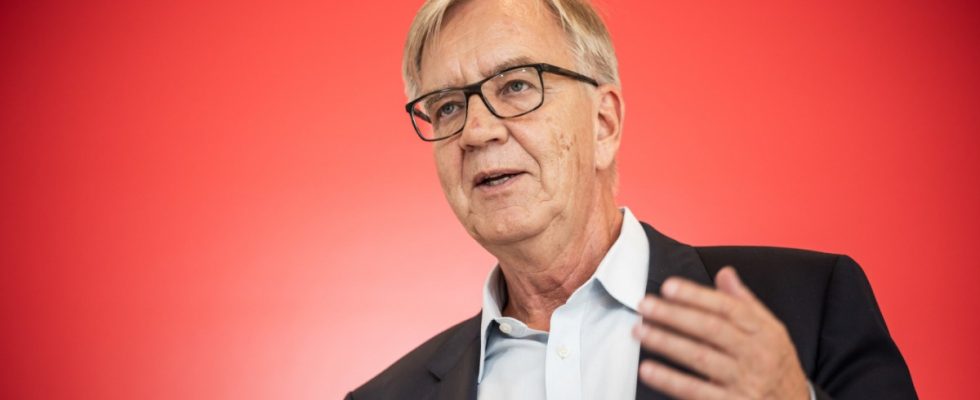Left faction leader Dietmar Bartsch resigns from office. According to a letter that Bartsch sent to the parliamentary group, he will not stand again in the September 4 board election. He made the decision a long time ago, he writes. At around 2 p.m. Bartsch wants to make a statement.
The two left chairmen Janine Wissler and Martin Schirdewan express regret about the withdrawal. Bartsch is one of the best-known faces of the left and a “loud voice for social justice and against child poverty,” writes the leadership duo. He took responsibility for the party in difficult situations.
Just last week, Bartsch’s co-chairman Amira Mohamed Ali announced her resignation. This means that the parliamentary group leadership of the Left must now be completely reassigned.
The background to Mohamed Ali’s resignation is the dispute over direction in the party surrounding MP Sahra Wagenknecht. Wagenknecht does not support the political line of federal chairmen Janine Wissler and Martin Schirdewan and wants to decide by the end of the year whether to found her own party. If that happens, the left and its parliamentary group are threatened with a split. It is expected that several of the 39 MPs would then leave the left along with Wagenknecht. With fewer than 37 seats, faction status would be lost and with it money, posts and influence for the small opposition party.
Bartsch did not justify his planned withdrawal with the current crisis, but wrote to the MPs: “My decision to give up the chairmanship of the parliamentary group after eight years, in which I led the parliamentary group first with Sahra Wagenknecht and then with Amira Mohamed Ali, is a long time ago in the last federal election. My family and closest political friends were aware of this decision.”
Bartsch has been co-chair of the left parliamentary group since 2015. Who could succeed Bartsch and Mohamed Ali is open. With Bartsch, one of the most prominent leftists is retiring from the front row. The 65-year-old comes from Mecklenburg-Western Pomerania and has held high party offices for decades. For a long time he was the national director of the predecessor party PDS and the newly founded Left Party in 2007. In 2009 he managed the federal election campaign. In 2012 he ran for party leader, but failed to get the necessary majority. In 2017, Bartsch was the top candidate for the federal election alongside Wagenknecht, and in 2021 he ran with party leader Wissler.
In his letter to the MPs, he appealed to his party: “Many are currently babbling about the end of the left. You will be wrong again if the values we are fighting for in society, such as humanity, solidarity, cordiality and a lot Smile again determine our actions and at the same time we draw the necessary conclusions from the history of left-wing parties.” Bartsch has repeatedly warned of the dangers of a split in the left and has criticized Wagenknecht’s flirtation with founding a party. When Wissler and Schirdewan, along with the rest of the party executive, resigned from Wagenknecht in June, Bartsch showed support for the party leadership.
All in all, the dispute on the left is not just about Wagenknecht as a person, but about the question of what modern “left” politics is. The party leadership courts the climate movement and wants radical climate protection combined with social balance. Wagenknecht and their supporters warn against too great a burden from climate protection. They want to limit migration and continue cheap energy imports from Russia despite the Ukraine war. At the most recent federal party conference of the left in 2022, Wagenknecht’s supporters could not prevail. Wissler and Schirdewan, on the other hand, secured the support of a majority of the delegates.

